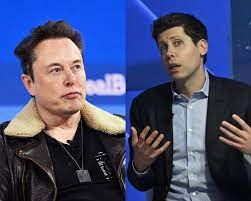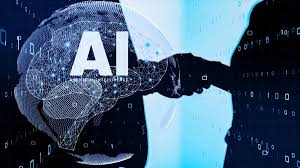Elon Musk is suing OpenAI and CEO Sam Altman for allegedly betraying the ChatGPT maker’s original goals of advancing humanity over business interests.
Billionaire Musk claimed in a complaint filed in San Francisco Superior Court that he had an agreement with Altman and President Greg Brockman, when he provided seed money for the founding of OpenAI, to maintain the AI firm as a nonprofit dedicated to creating technology for the general public’s benefit.
According to the lawsuit, OpenAI was also bound by its founding agreement to release its code publicly rather than to keep it proprietary for the benefit of a private business.
Laptops 1000Musk claims in the lawsuit that OpenAI and its top executives have set that agreement “ablaze” and are “perverting” the company’s objective by forming a tight relationship with Microsoft.
On Friday, OpenAI declined to comment on the legal action.
The lawsuit, which was filed on Thursday, claims that “OpenAI, Inc. has been transformed into a closed-source de facto subsidiary of the largest technology company in the world: Microsoft.” “Under its new Board, it is not only developing but refining an AGI for the benefit of humanity, rather than just to maximize profits for Microsoft.”
Artificial general intelligence, or AGI, is the term for general-purpose AI systems that are capable of carrying out a wide range of tasks either as well as or even better than humans.
Musk is suing for unfair business tactics, breach of fiduciary duty, and breach of contract. In addition, he seeks an injunction to stop anyone from using OpenAI’s technology, including Microsoft.
Anupam Chander, a Georgetown University law professor, stated that although Musk is putting his opinion and personal narrative on the record, it’s possible that he doesn’t care if his claims are rejected in court.
“There is a claim that Elon founded OpenAI and generative AI technology, and specifically that he hired the key scientist, named OpenAI, and was the primary funder of the company in its early years,” Chander added. It’s almost like a lawsuit where he’s trying to carve out a position for himself in the annals of generative AI.
Laptops 1000When OpenAI was first established in 2015, Musk was one of the initial investors and co-chaired the board with Altman. He claimed to have contributed “tens of millions” of dollars to the nonprofit research institute in the lawsuit.
To avoid conflicts of interest, Musk resigned from the board in early 2018. At the time, OpenAI claimed that this action would be taken because the Tesla CEO was seeking AI expertise to develop self-driving technology at the electric vehicle manufacturer.
“This will remove a possible future conflict for Elon,” OpenAI wrote on their blog in February 2018. Since then, Musk has acknowledged that he disagreed with the startup’s strategy as well, but he kept giving to the charity.
Later on in the year, OpenAI started moving the majority of its staff to its for-profit division and completed the necessary paperwork to incorporate, all the while keeping its nonprofit board of directors in place to oversee operations.
2019 saw Microsoft make its first $1 billion investment in the business, and the following year it inked a deal granting the software behemoth exclusive rights to its AI models. According to the corporation, the license will expire whenever OpenAI achieves artificial general intelligence.
With the release of ChatGPT in late 2022, OpenAI gained international recognition and sparked a tech industry competition amongst corporations to leverage the public’s excitement with the technology.
Microsoft was a driving force behind the effort to get Altman reinstated as CEO after the nonprofit board abruptly dismissed him late last year for reasons that are still not entirely clear. This move also caused the majority of the former board members to quit. According to Musk’s lawsuit, the modifications led the safeguards against the nonprofit’s objective to “collapse overnight.”
One of Musk’s allegations is that the nonprofit’s directors have neglected to fulfill their duties to carry out the organization’s objective, but Brooklyn Law School professor Dana Brakman Reiser questions whether Musk has the right to make such a claim.
“Everyone who cared about or gave to a charity could suddenly sue its directors and officers to say, ‘You’re not doing what I think is the right thing to run this nonprofit,'” she said. This would be quite concerning. She stated that generally speaking, that kind of lawsuit could only be brought by other directors or an attorney general, for instance.
Musk seems to be complaining that the organization is earning too much profit in contrast to its objective, which involves making its technologies publicly available, even if he did invest in the for-profit company.
“I’m concerned that nonprofit organizations fulfill their stated missions rather than being used for financial gain of any type. That is a serious worry, according to Brakman Reiser. “I’m not sure if Elon Musk is the right person to bring up that claim.”
Regardless of the legality of the allegations, a developing legal battle between Altman and Musk—who recently founded his own AI startup—may provide the public with access to internal discussions and OpenAI decision-making processes, though the company’s attorneys will probably fight to protect the confidentiality of some of those records.
Venture entrepreneur Chamath Palihapitiya wrote on Musk’s social media platform X on Friday, saying, “The discovery will be epic.” Musk responded to this in his lone public statement regarding the lawsuit thus far: Yes.

















